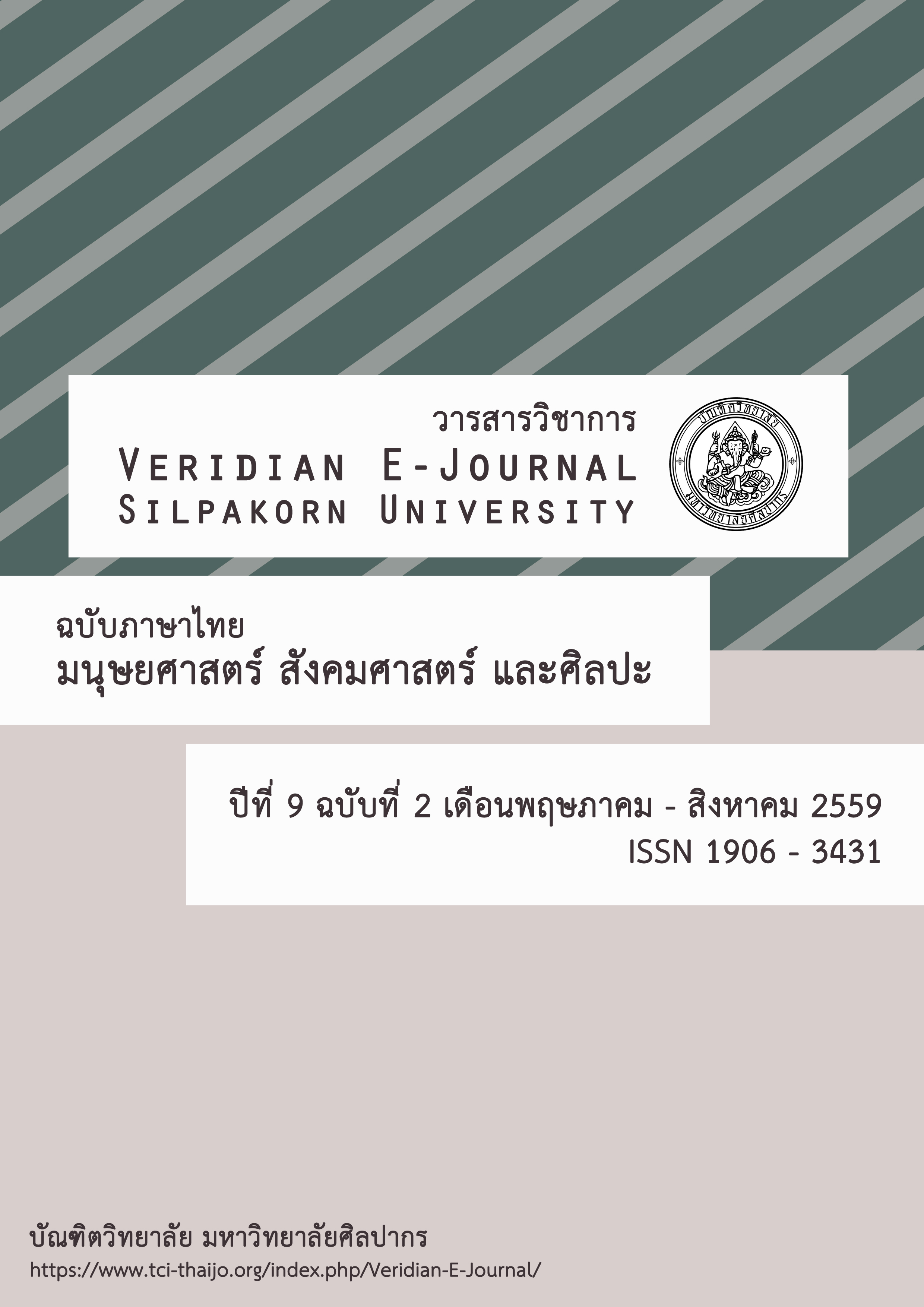แนวทางการจัดการเรียนรู้วิชาสังคมศึกษาตามแนวปรัชญาของเศรษฐกิจพอเพียง เพื่อส่งเสริมทักษะการเรียนรู้ของผู้เรียนในศตวรรษที่ 21
Main Article Content
บทคัดย่อ
การศึกษาเป็นเครื่องมือในการพัฒนาคุณภาพของประชากรและคุณภาพของการศึกษา อันเป็นปัจจัยสำคัญที่สุดในการพัฒนาประเทศ ดังนั้นเมื่อสังคมโลกได้ตระหนักและเล็งเห็นความสำคัญของความเจริญก้าวหน้าทางด้านเทคโนโลยีมาเป็นส่วนหนึ่งในชีวิตประจำวัน ครูผู้สอนในยุคศตวรรษที่ 21 จึงต้องปรับตัวให้เข้ากับการเรียนรู้ให้ทันยุคสมัยที่มีการเปลี่ยนแปลงตลอดเวลา เพื่อส่งเสริมทักษะของผู้เรียน เช่น ทักษะความยืดหยุ่นและการปรับตัว ทักษะริเริ่มและชี้นำตนเอง ทักษะการสื่อสารและความรวมกลุ่มทักษะภาวะผู้นำและความรับผิดชอบ ทักษะชีวิตและอาชีพ ทักษะความร่วมมือ ทักษะความสามารถในการผลิตและพันธะรับผิดชอบ ทักษะความคิดเชิงวิพากษ์และการแก้ปัญหา ทักษะทางสังคมและข้ามวัฒนธรรม ทักษะการสร้างสรรค์และนวัตกรรม ตลอดจนทักษะสารสนเทศ สื่อ และเทคโนโลยี ซึ่งสามารถกำหนดเป็นขั้นการจัดการเรียนรู้ ได้แก่ 1. ขั้นการเสนอข้อมูลความรู้ 2. ขั้นการคิดวิเคราะห์ 3. ขั้นการตรวจสอบ และ 4. การวัดและการประเมินผล เป็นต้น ดังนั้นต้องมีการกำหนดคุณลักษณะของบุคคลในศตวรรษที่ 21 และแนวทางในการดำเนินงานการพัฒนาของครูและผู้เรียนที่จะสามารถส่งเสริมทักษะการเรียนรู้ให้สอดคล้องกับบริบทสังคมไทยที่ได้น้อมนำแนวคิดปรัชญาของเศรษฐกิจพอเพียงของพระบาทสมเด็จพระเจ้าอยู่หัวภูมิพลอดุลยเดชมาปรับใช้ในการพัฒนาให้สมดุล และยั่งยืน พร้อมรับต่อการเปลี่ยนแปลงในทุกด้าน ทั้งด้านเศรษฐกิจ สังคม สิ่งแวดล้อม ความรู้ และเทคโนโลยีอย่างมั่งคงและยั่งยืนต่อไป
Education serves as a tool for the improvement of quality of people and education. These are two most important factors in developing the country. The global community has recognized the importance of the advancement of technology as part of everyday life. This forces teachers in the 21st century to adapt themselves to keep up with the fast current learning which has been changing all the time. To promote the skills of the students, such as. Flexibility and Adaptability, Initative and Self-Direction, Communication and Collection, Leadership and Responsibility, Life and Career Skill, Collaboration, Productivity and Accountability, Critical Thinking and Problem Solving, Social and Cross-Cultural Skills, Creativity and innovation, Information, Media and Technology Skills. Which can be defined as a process of learning include. 1. Present knowledge 2. Analytical Thinking 3. Examination and 4. Measurement and Evaluation and so on. There is a need for defining the attributes of the people of the 21st century and creating guidelines for the development of teachers and learners to enhance their skills in accordance with Thai social contexts, which has adopted the philosophy of sufficiency economy advocated by His Majesty the King Bhumibol Adulyadej. The practice has been applied for a balanced and sustainable development for the coming changes all aspects.

